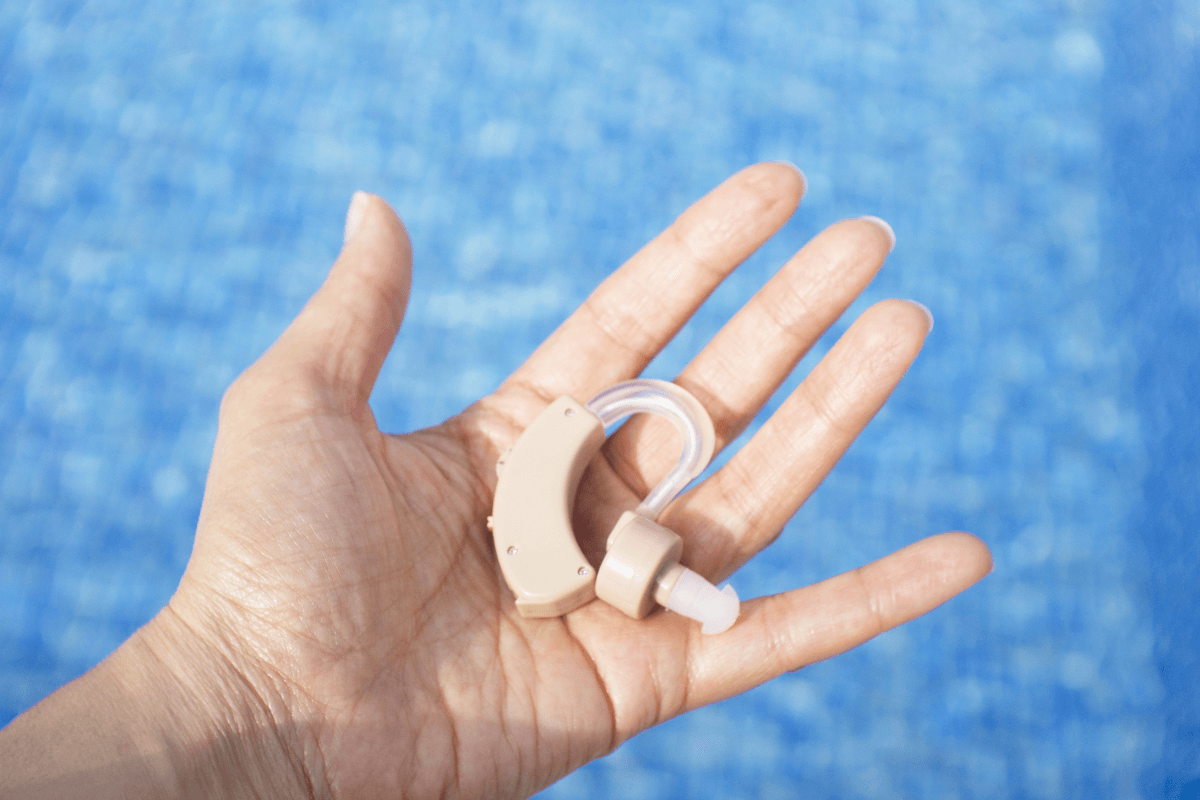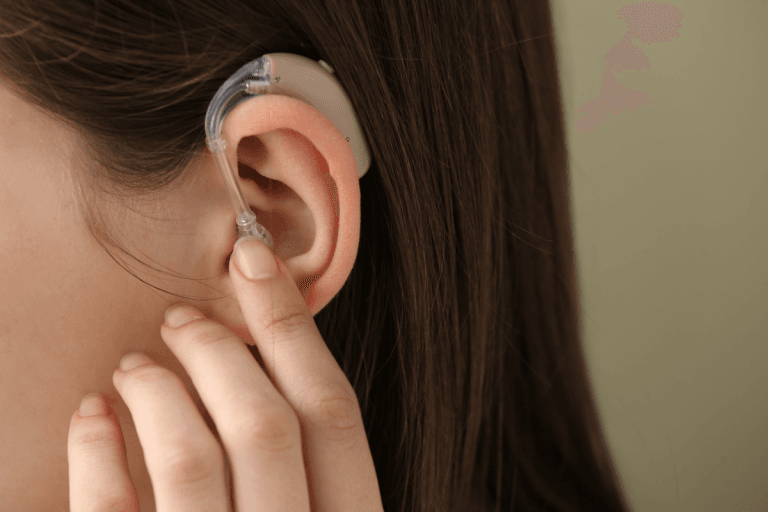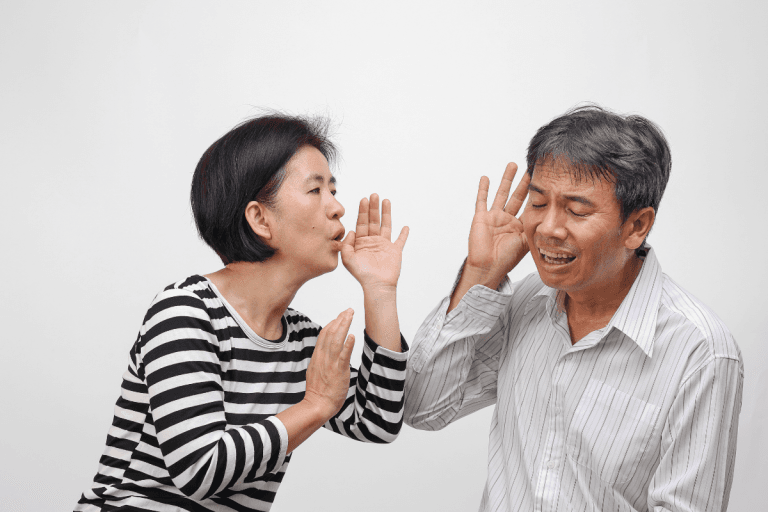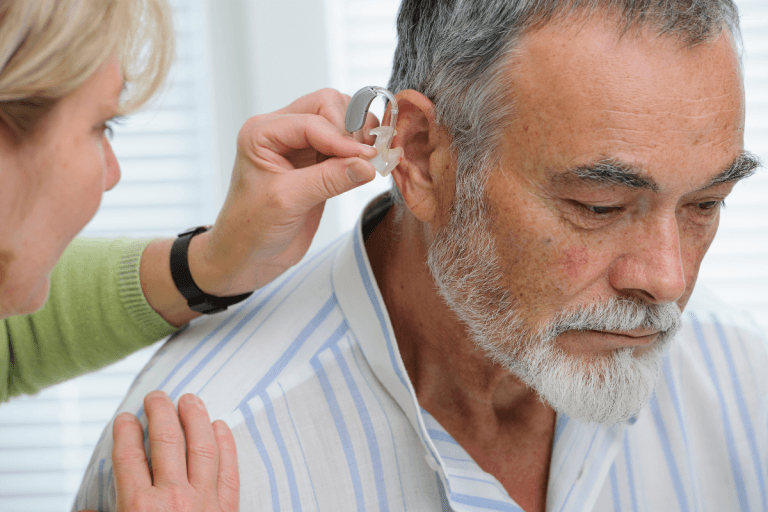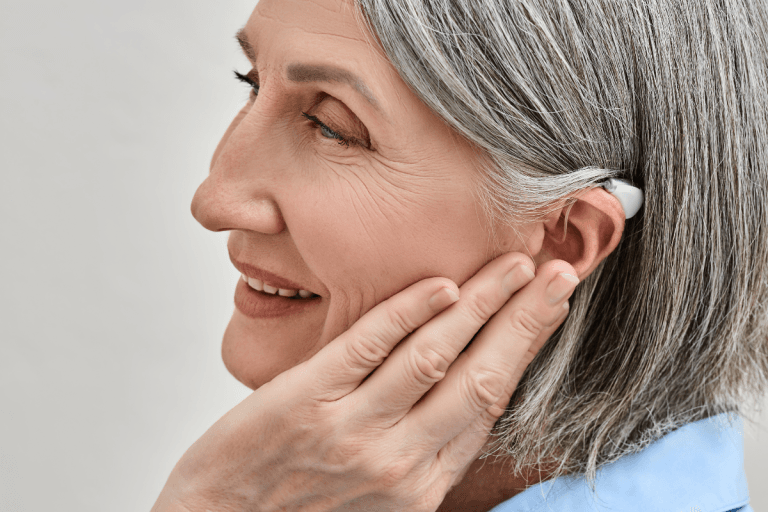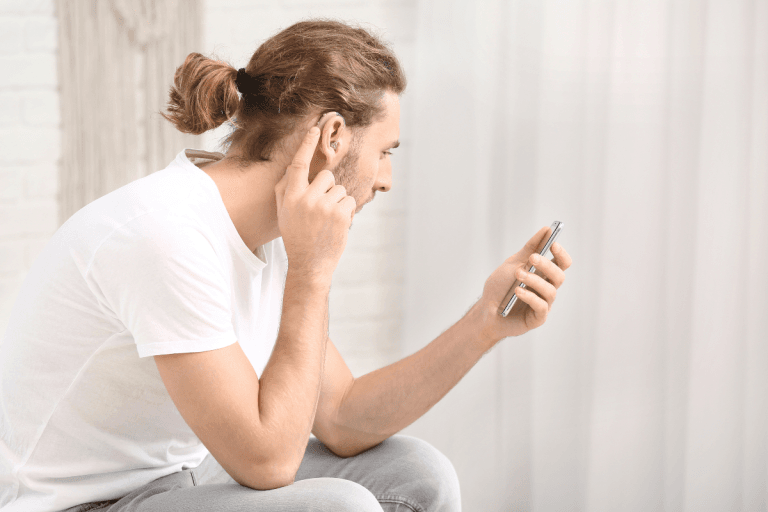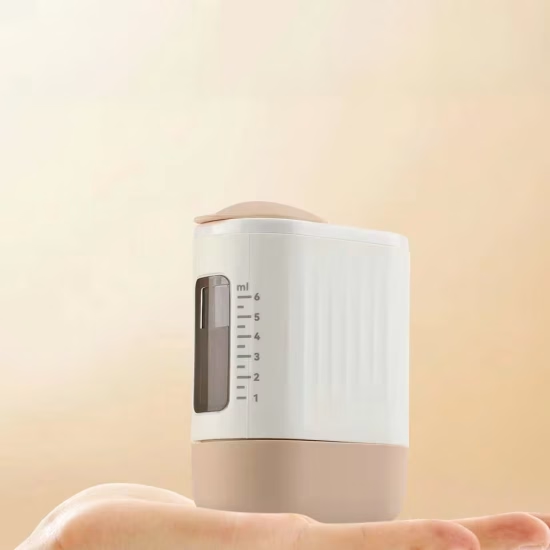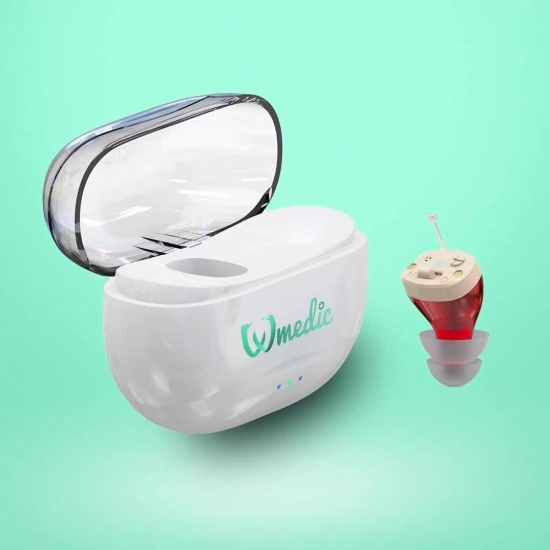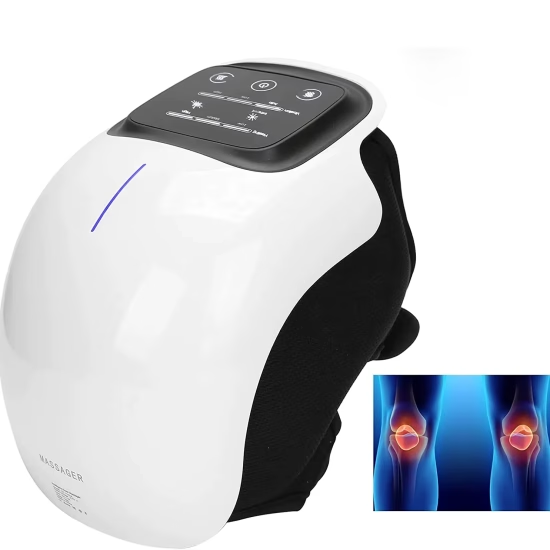Hearing Aids & Swimming: Protect Your Device While Staying Active
For those who wear hearing aids, maintaining an active lifestyle can sometimes feel like a balancing act. While hearing aids are designed to enhance your hearing, activities like swimming can present a challenge. Water and hearing aids don’t mix well, and exposure to moisture can damage the device, leaving you without the support you need. But don’t let the fear of water hold you back from your favorite activities! With the right precautions and tools, you can protect your hearing aids while continuing to enjoy swimming and staying active.
- Why Water and Hearing Aids Don’t Mix
- The Risk of Moisture Damage
- Choosing Water-Resistant or Waterproof Hearing Aids
- Use a Swim Cap to Keep Water Out
- Hearing Aid Drying Kits and Dehumidifiers
- Consider Using Custom-Made Covers
- Take Them Out Before Swimming
- What to Do if Your Hearing Aid Gets Wet
- Why Water and Hearing Aids Don’t Mix
Hearing aids are delicate devices that rely on electronic components to amplify sound. These components are sensitive to moisture, which can cause corrosion, malfunctions, and even complete failure. Water exposure—whether from rain, sweat, or swimming—can severely damage your hearing aids if proper precautions aren’t taken. - The Risk of Moisture Damage
Moisture can seep into hearing aids and cause several issues. It can disrupt the microphone, receiver, and internal circuitry, leading to muffled sound, distortion, or a complete loss of function. While modern hearing aids are built to be durable and some are even water-resistant to a degree, they aren’t fully waterproof unless specifically designed for aquatic activities. - Choosing Water-Resistant or Waterproof Hearing Aids
If swimming is a big part of your lifestyle, consider investing in hearing aids that are designed to withstand moisture. There are water-resistant models available, and some manufacturers offer fully waterproof options. These devices are built to resist moisture and can handle sweat or a splash of water. Be sure to check the specifications of any hearing aid to confirm its water resistance rating before hitting the pool. - Use a Swim Cap to Keep Water Out
For those who prefer to wear their hearing aids while swimming, using a swim cap can be a simple and effective way to protect your device. A snug swim cap will help keep your hearing aids secure and prevent them from getting wet. While this method won’t make your hearing aids completely waterproof, it does provide an added layer of protection against splashes and water exposure. - Hearing Aid Drying Kits and Dehumidifiers
After a swim, it’s essential to dry out your hearing aids thoroughly. Investing in a hearing aid drying kit or dehumidifier can help remove moisture from your devices. These kits typically include a drying chamber that gently draws moisture out of the hearing aids, reducing the risk of long-term damage. Many users make this part of their evening routine to ensure their hearing aids stay in top condition. - Consider Using Custom-Made Covers
If you’re active in the water but want to keep your hearing aids in place, custom-made waterproof covers are available for certain models. These covers act as a protective barrier, shielding your hearing aids from moisture while allowing you to enjoy the benefits of hearing enhancement. Custom covers can also be tailored to fit the specific shape and design of your device. - Take Them Out Before Swimming
The simplest solution to prevent water damage is to take your hearing aids out before swimming. While this may seem inconvenient, it’s the most effective way to protect your investment. Keep your hearing aids in a safe, dry place while you’re in the water, and reinsert them afterward. It’s always best to err on the side of caution to avoid expensive repairs or replacements. - What to Do if Your Hearing Aid Gets Wet
If your hearing aid does get wet despite your best efforts, don’t panic! Start by removing the device from your ear and drying it off gently with a soft cloth. You can place it in a drying kit or a container with a desiccant to absorb the moisture. If your hearing aid continues to malfunction, contact your audiologist or the manufacturer for assistance. Some devices are repairable if they’ve suffered water damage, especially if caught early.
In Summary:
Water and hearing aids don’t mix, but with the right precautions, you can continue to stay active and enjoy swimming without worrying about damaging your device. Whether it’s choosing water-resistant hearing aids, using a swim cap, or investing in drying kits, there are several ways to protect your hearing aids from moisture. If your hearing aids do get wet, take immediate action to dry them out, and seek professional help if necessary.
Disclaimer: This article is for informational purposes only. For specific guidance on hearing aid care, maintenance, and swimming-related issues, please consult your audiologist or hearing healthcare professional.
References:
- American Speech-Language-Hearing Association (ASHA). “Caring for Your Hearing Aids.”
- National Institute on Deafness and Other Communication Disorders (NIDCD). “Hearing Aids.”
- Hearing Life. “How to Protect Your Hearing Aids from Water Damage.”

